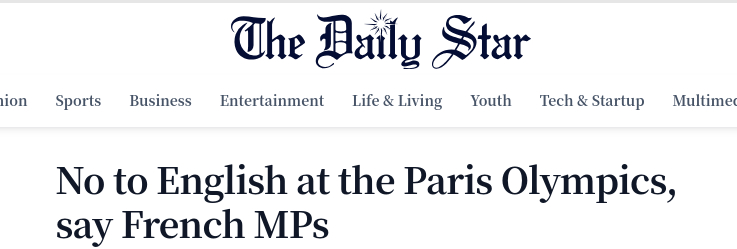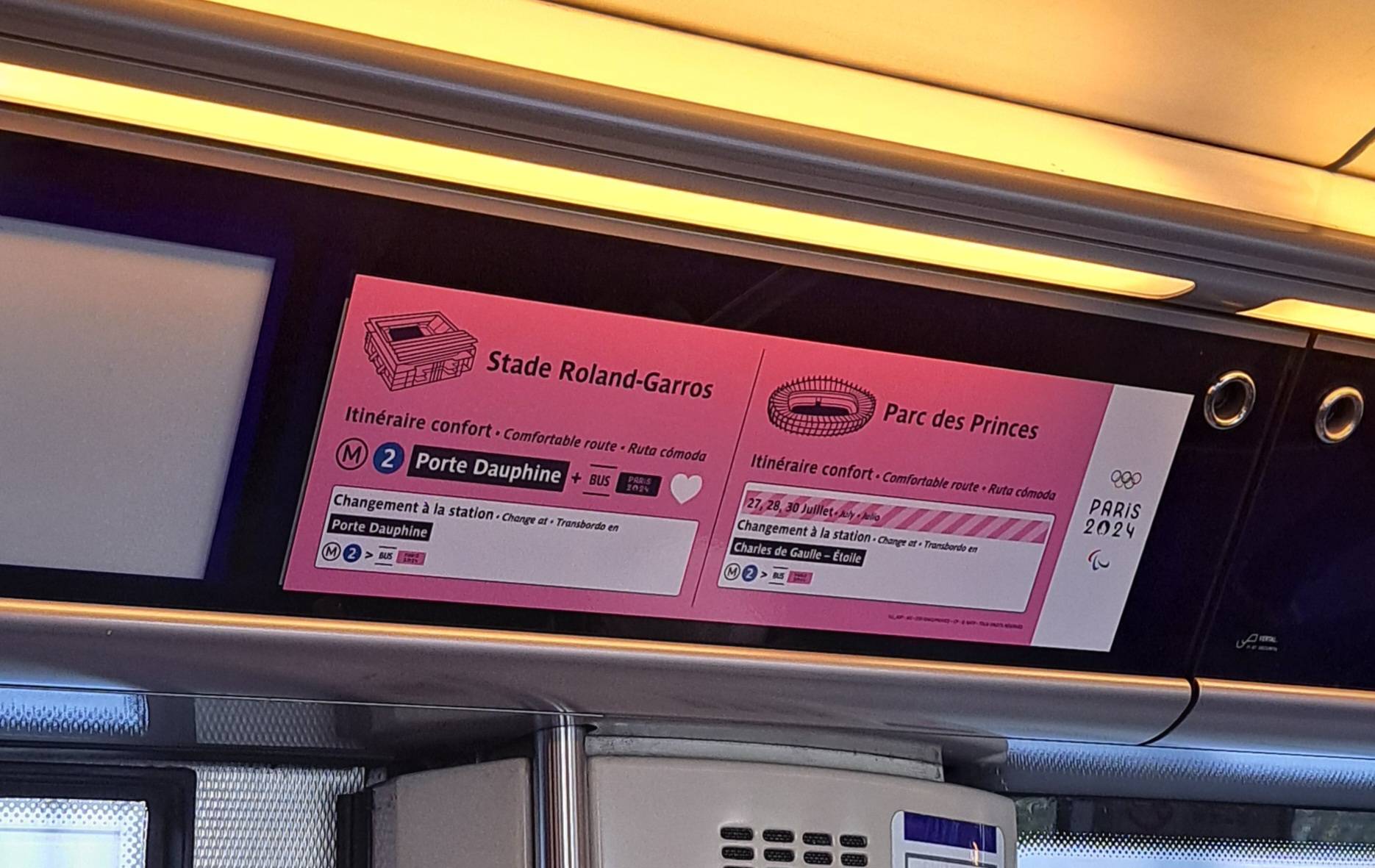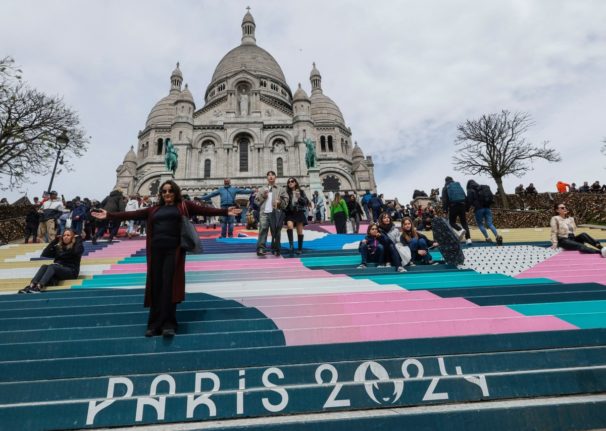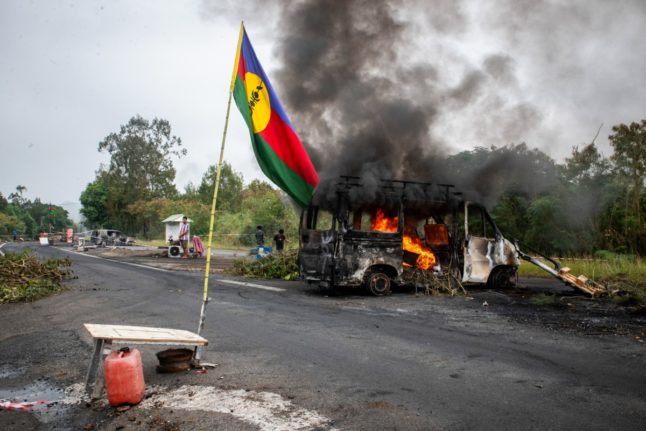In a resolution adopted on Thursday, France’s Assemblée Nationale urged organisers of the 2024 Paris Games, as well as athletes, trainers and journalists, to use French as much as possible.
Annie Genevard, the sponsor of the resolution from the right-wing Les Républicains party, expressed alarm to fellow MPs that “the Olympic Games reflect the loss of influence of our language.”

Citing examples of English slogans in international sport, she added: “The fight for the French language … is never finished, even in the most official spheres.
“Let’s hope that ‘planche a roulettes’ replaces skateboard and ‘rouleau du cap’ point break (a surfing term), but I have my doubts.”
She’s right to doubt it – in French the skateboarding event is ‘le skateboard’, while the new addition of break-dancing is ‘le breaking‘.
But what does this actually mean?
In brief, not a lot. This is a parliamentary resolution, not a law, and is totally non-binding.
The Games are organised by the International Olympic Committee, the Paris 2024 Organising Committee and Paris City Hall – MPs do not have a role although clearly the Games must follow any French domestic laws that parliament passes.
The French parliament has got slightly involved with security issues for the Games, passing laws allowing for the use of enhanced security and surveillance measures including the use of facial recognition and drone technology that was previously outlawed in France.
So what do the Olympic organisers think of English?
The Paris 2024 organisers have shown that they have no problem using English – which is after all one of the two official languages of the Olympics. The other being French.
The head of the organising committee Tony Estanguet speaks fluent English and is happy to do so while official communications from the Games organisers – from social media posts to the ticketing website – are all available in both French and English.
✨ Happy #Olympic and #Paralympic Week! Did you know there are plenty of opportunities for you to engage in the Games? @TonyEstanguet, President of @Paris2024, tells us how Americans can follow this extraordinary event with the 🇫🇷 and the rest of the world! @franceintheus pic.twitter.com/yXSWixw8XG
— Consulate of France in New York (@franceinnyc) April 2, 2024
Even the slogan for the Games is in both languages – Ouvrir grand les jeux/ Games wide open (although the pun only really works in French).
In fact the Games organisers have sometimes drawn criticism for their habit (common among many French people, especially younger ones) of peppering their French with English terms, from “le JO-bashing” – criticism of the Olympics – to use of the English “challenges” rather than the French “defis”.
The 45,000 Games volunteers – who are coming from dozens of countries – are required only to speak either French or English and all information for volunteers has been provided in both languages.
Paris local officials are also happy to use languages other than French and the extra signage that is going up in the city’s public transport system to help people find their way to Games venues is printed in French, English and Spanish.

Meanwhile public transport employees have been issued with an instant translation app, so that they can help visitors in multiple languages.
In short, visitors who don’t speak French shouldn’t worry too much – just remember to say bonjour.
Official language
So why is French an official language of the Olympics? Well that’s easy – the modern Games were the invention of a Frenchman, the aristocrat Pierre de Coubertin, in the late 19th century.
Some of his views – for example that an Olympics with women would be “impractical, uninteresting (and) unaesthetic” – have thankfully been consigned to the dustbin of history, but his influence remains in the language.
The International Olympic Committee now has two official languages – English and French.
Official communications from the IOC are done in both languages and announcements and speeches at the Games (for example during medal ceremonies) are usually done in English, French and the language of the host nation, if that language is neither English nor French.



 Please whitelist us to continue reading.
Please whitelist us to continue reading.
Member comments